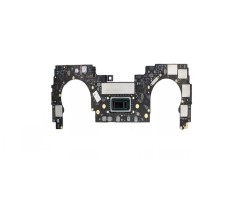The Role of Security Guards in Airport Security

The Role of Security Guards in Airport Security
Airport security is a critical component of air travel safety, ensuring the protection of passengers, staff, and infrastructure. Security guards play a significant role in maintaining a secure environment by preventing threats, assisting passengers, and responding to emergencies. Their duties extend beyond routine inspections and include surveillance, crowd management, and collaboration with law enforcement agencies.
Importance of Security Guards in Airports
Security guards serve as the first line of defense in airports, deterring criminal activities and ensuring compliance with safety regulations. Their presence helps to create a safe and secure atmosphere, reassuring passengers and staff. Airports are high-risk locations, making the role of security personnel indispensable in preventing security breaches.
Surveillance and Monitoring
One of the primary responsibilities of airport security guards is surveillance. They monitor security cameras, patrol airport premises, and identify suspicious activities. Their vigilance helps in early detection of potential threats, allowing authorities to take necessary actions before incidents occur.
Baggage Screening and Passenger Checks
Security guards assist in baggage screening and passenger checks, ensuring that no prohibited items enter the airport. By working closely with security screening officers, they help enforce strict guidelines on what can be carried onboard, preventing dangerous situations.
Crowd Control and Emergency Response
Airports are often crowded, especially during peak hours. Security guards manage crowds effectively, preventing congestion and ensuring smooth passenger movement. In emergencies such as fire outbreaks, medical incidents, or security threats, they take swift action to protect lives and minimize chaos.
Preventing Unauthorized Access
Restricted areas in airports require strict monitoring. Security guards prevent unauthorized access to sensitive zones such as control towers, runways, and baggage handling areas. Their presence helps safeguard critical infrastructure from potential security risks.
Assisting Passengers and Providing Guidance
Security guards also play a crucial role in assisting passengers by providing directions, answering queries, and ensuring a smooth airport experience. Their presence helps in reducing confusion, especially for first-time travelers or those with special needs.
Collaboration with Law Enforcement Agencies
Security guards work in coordination with law enforcement agencies to enhance airport security. They assist in investigations, report suspicious activities, and support police officers during security operations. Their collaboration ensures a well-rounded approach to maintaining safety.
Managing Security Threats and Crisis Situations
Security guards are trained to handle various security threats, including bomb threats, hijack attempts, and unauthorized drone activities. Their ability to assess situations quickly and implement countermeasures is crucial in preventing security incidents.
Enhancing Cybersecurity Measures
With airports becoming increasingly reliant on digital systems, security guards assist in cybersecurity efforts by monitoring restricted access areas and ensuring that unauthorized individuals do not compromise sensitive data. Their vigilance helps prevent cyber-related security breaches.
Role in Cargo and Logistics Security
Apart from passenger security, security guards also oversee cargo and logistics operations to prevent smuggling, theft, and unauthorized shipments. Their monitoring ensures that goods transported via air comply with security regulations.
Ensuring Compliance with International Security Standards
Airports must adhere to strict international security regulations set by organizations such as the International Civil Aviation Organization (ICAO). Security guards help enforce these standards by following established protocols and conducting routine security checks.
Addressing Terrorism Threats
Airports are prime targets for terrorism. Security guards play a vital role in detecting and preventing terrorist activities by conducting thorough inspections and staying alert for any unusual behavior. Their presence acts as a deterrent against potential threats.
Importance of Communication Skills in Security Guards
Effective communication is essential for security guards, as they interact with passengers, airline staff, and law enforcement personnel. Their ability to convey instructions clearly and respond to inquiries professionally contributes to a smooth security process.
Training and Skill Development
To perform their duties effectively, security guards undergo rigorous training programs that cover threat detection, emergency response, first aid, and customer service. Regular training sessions help them stay updated on the latest security protocols.
The Future of Airport Security
Advancements in technology, such as biometric screening and artificial intelligence, are transforming airport security. Security guards continue to play a crucial role by integrating these technologies into their daily operations, ensuring that airports remain secure and efficient.
Security personnel are vital to the overall safety of airports, preventing security threats and ensuring a seamless travel experience. For professional security services, visit Security Guard Services, which offers expert solutions tailored to airport security needs.
FAQs
1. Why are security guards important in airports?
Security guards help prevent security threats, manage crowds, assist passengers, and enforce safety regulations, ensuring a secure environment.
2. How do security guards assist in emergency situations?
They provide immediate response during emergencies such as fire incidents, medical crises, and security threats, helping to maintain order and safety.
3. Do airport security guards work with law enforcement?
Yes, they collaborate with law enforcement agencies to enhance security measures, report suspicious activities, and support investigations.
4. What kind of training do airport security guards receive?
They undergo training in threat detection, crisis management, first aid, and customer service to handle various security challenges effectively.
5. How do security guards prevent unauthorized access in airports?
They monitor restricted areas, check identification, and enforce security protocols to prevent unauthorized entry into sensitive zones.
6. What technologies do security guards use in airports?
They utilize surveillance cameras, biometric screening, and other security systems to detect threats and enhance overall airport safety.
What's Your Reaction?






















